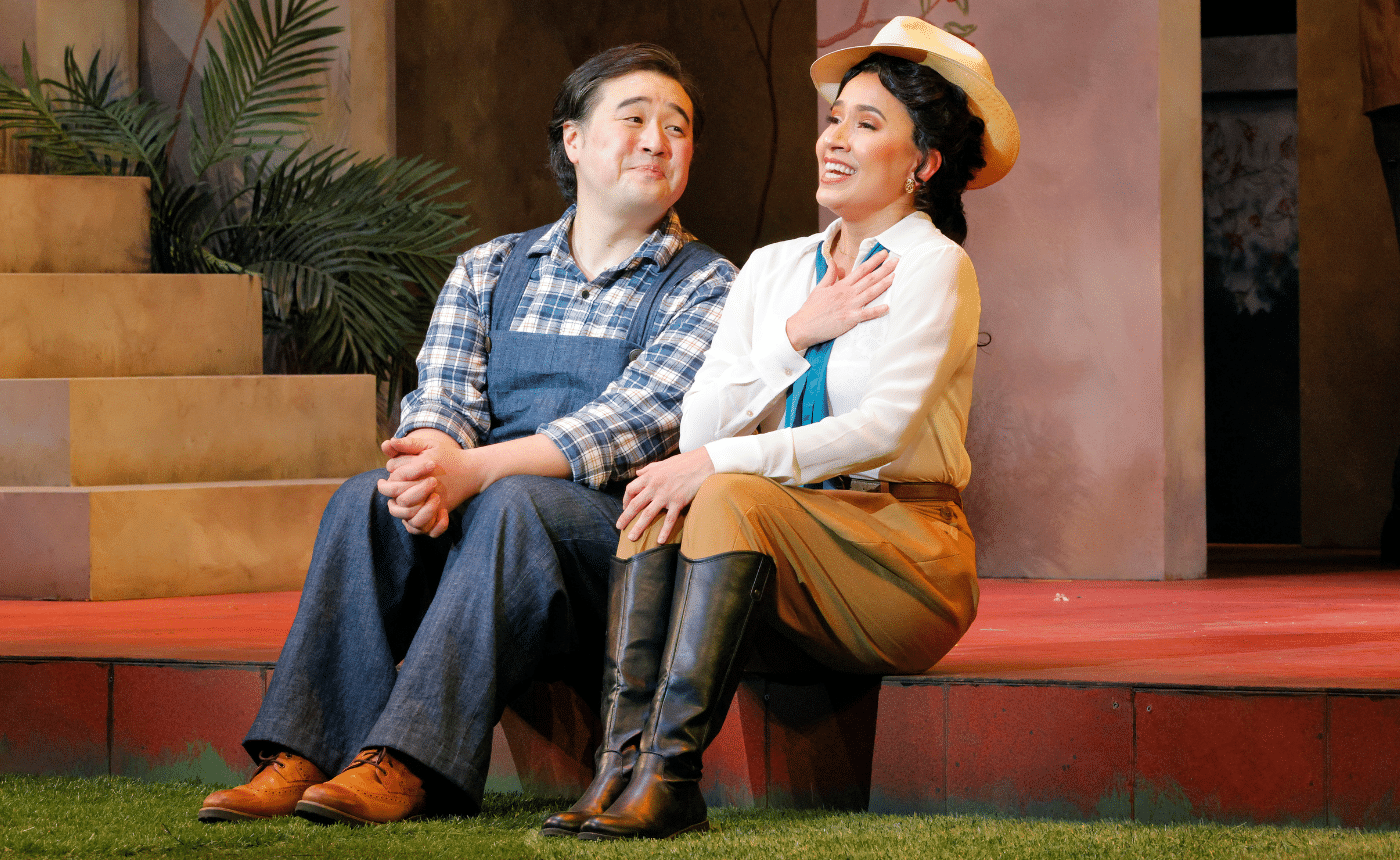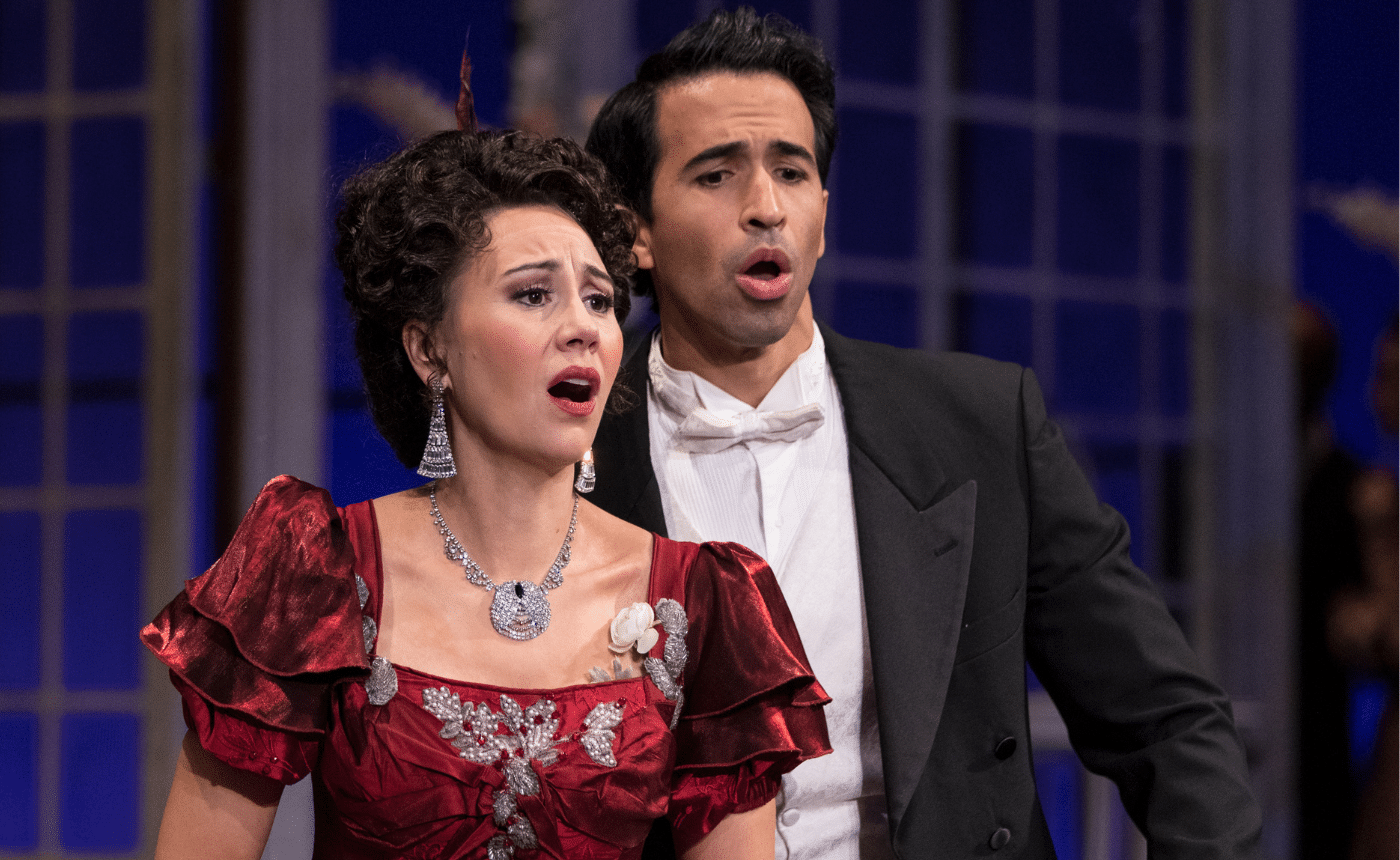COME ALONG with the Little Prince!
Dramaturg Paul Hopper traces the Little Prince’s journey. Read along together, and let him introduce you to all the characters the Prince meets along the way!
All quotations are from the book Le Petit Prince by Antoine de Saint-Exupéry.
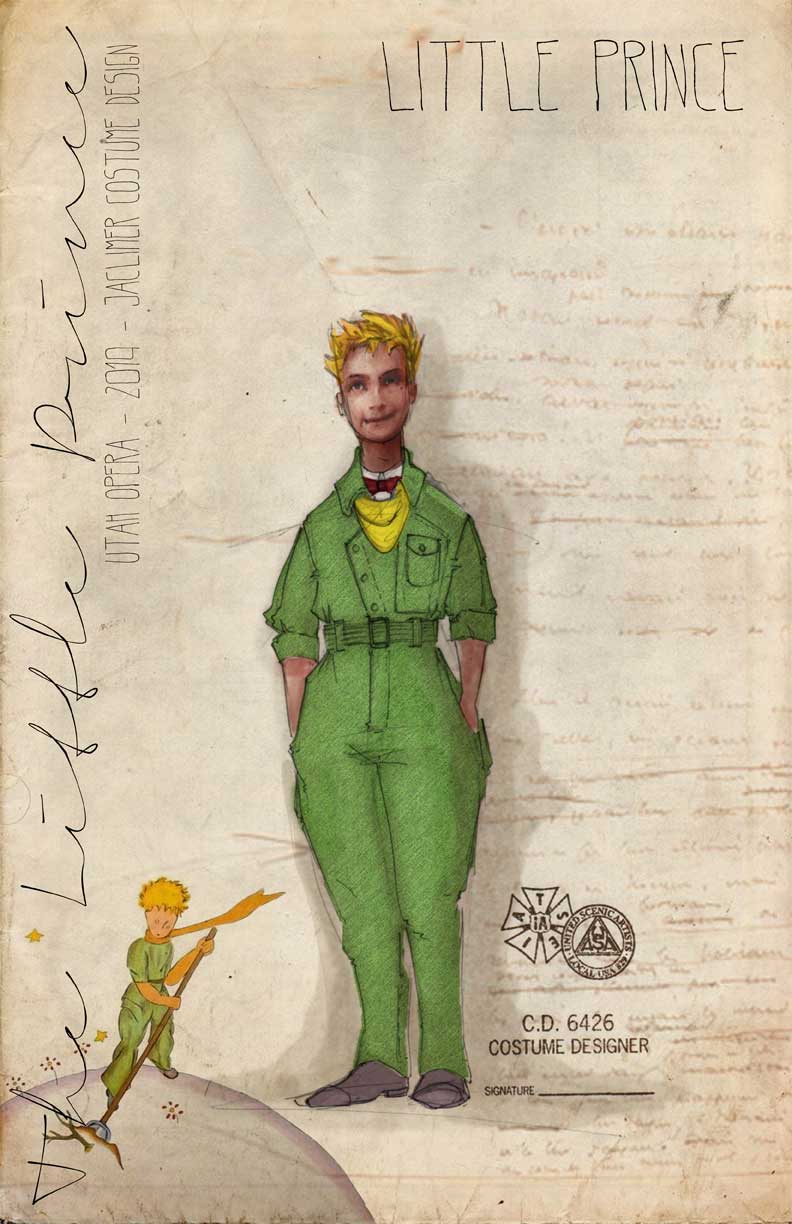
“JACOB A. CLIMER – “THE LITTLE PRINCE”
THE LITTLE PRINCE
This is no ordinary prince. The Little Prince comes from Asteroid B-612, a tiny planet no larger than a house. He keeps busy by cleaning his three small volcanoes and keeping the baobab trees away until one day –he sees a Rose. He loves the Rose deeply, but she is vain and demanding, so he sets off to explore the universe! On his travels, he meets a number of colorful and often puzzling characters. He realizes that all he wants in life is to love his precious Rose, and that the search for answers can be more important than the answers themselves.
“I have not much time. I have friends to discover, and a great many things to understand.”
THE PILOT
Our narrator throughout The Little Prince is the Pilot, who is looking back on his chance encounter with the Prince six years earlier. The two meet after the Pilot’s plane crash lands in the Sahara Desert. Even though he is an adult and the Little Prince is a child, the Pilot realizes they share the same outlook on life. The character of the Pilot is based on Antoine de Saint-Exupéry, the author of the original The Little Prince. He was a pilot, too, and doodled pictures of his imaginary prince for years before he finally wrote the book—his doodles ended up becoming the illustrations!
“Grownups never understand anything by themselves, and it is tiresome for children to be always and forever explaining things to them.”
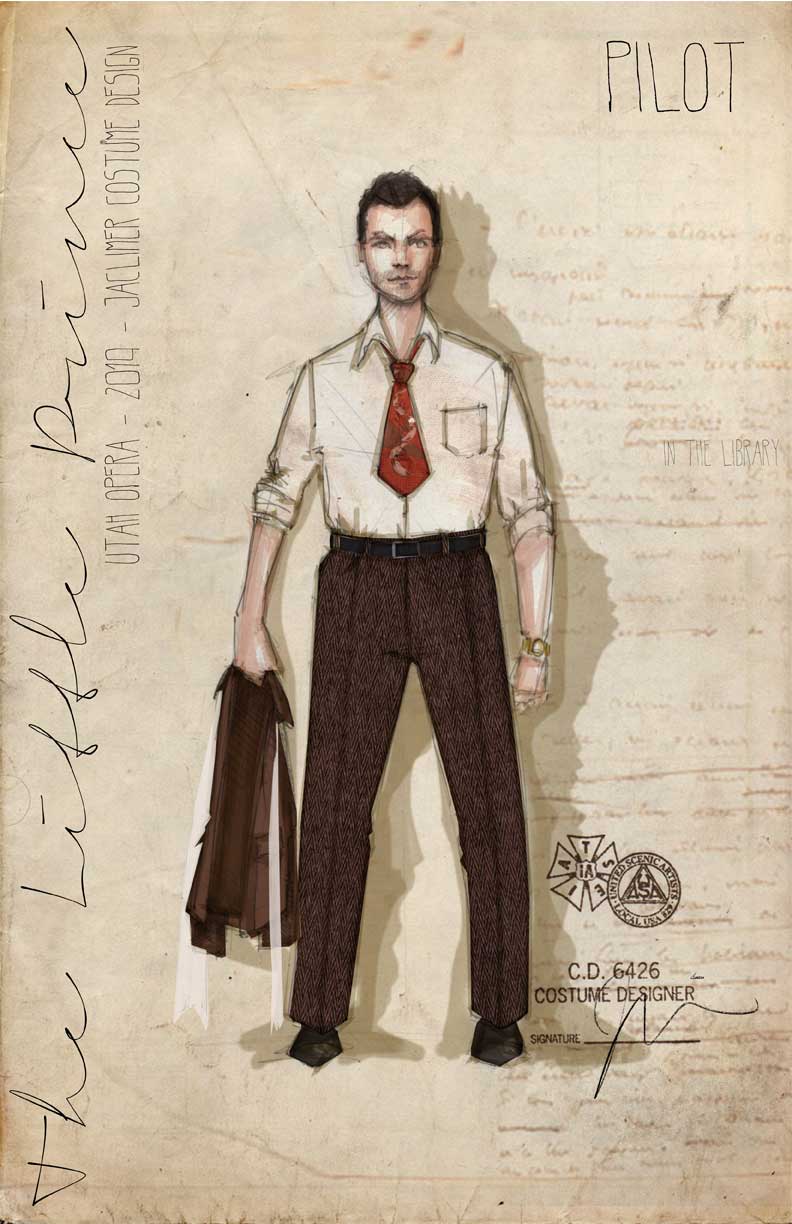
“JACOB A. CLIMER – “THE LITTLE PRINCE”
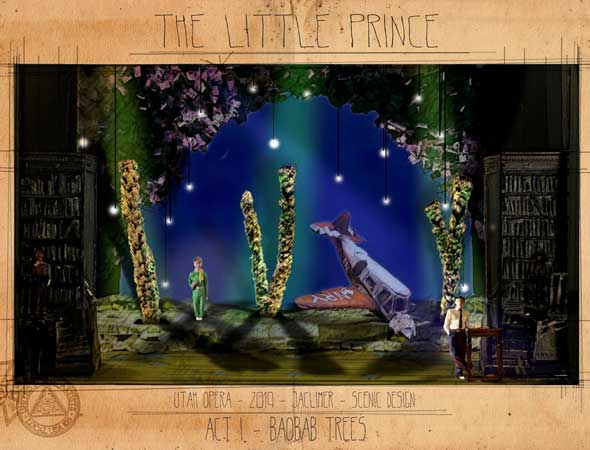
“JACOB A. CLIMER – “THE LITTLE PRINCE”
THE BAOBAB TREES
The towering baobab trees are pesky weeds that can easily take over an entire planet if they’re not spotted early. The prince diligently watches for the first sign of them on his planet and yanks them out to protect his home. The baobab trees remind us that while some daily tasks may seem insignificant now, they cannot be ignored.
“Sometimes there is no harm in putting off a piece of work until another day. But when it is a matter of baobabs, that always means a catastrophe.”
THE ROSE
On Asteriod B-612 there grows a Rose of exquisite beauty. When she emerges from her bud the first time, the Prince falls in love with her. Unfortunately, she is as moody as she is beautiful, and the Prince abandons her to begin his voyage. As the Prince grows in wisdom, he learns to love the Rose simply for her essence. Many believe the character of the Rose is based on Saint-Exupéry’s wife, Consuelo.
“I ought to have judged her on acts and not on words…but I was too young to know how to love.”
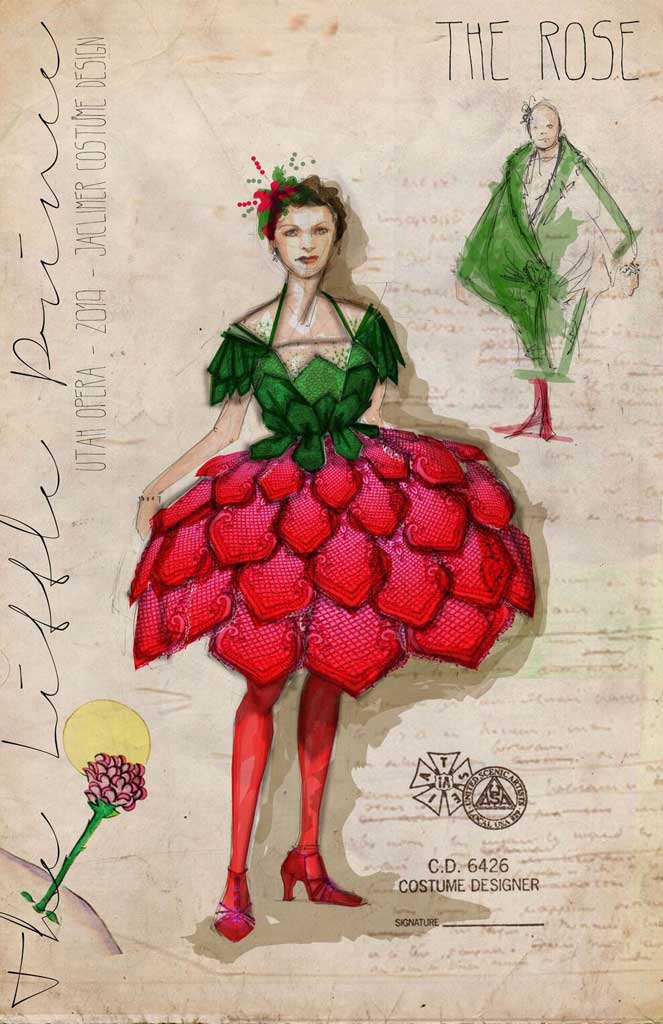
“JACOB A. CLIMER – “THE LITTLE PRINCE”
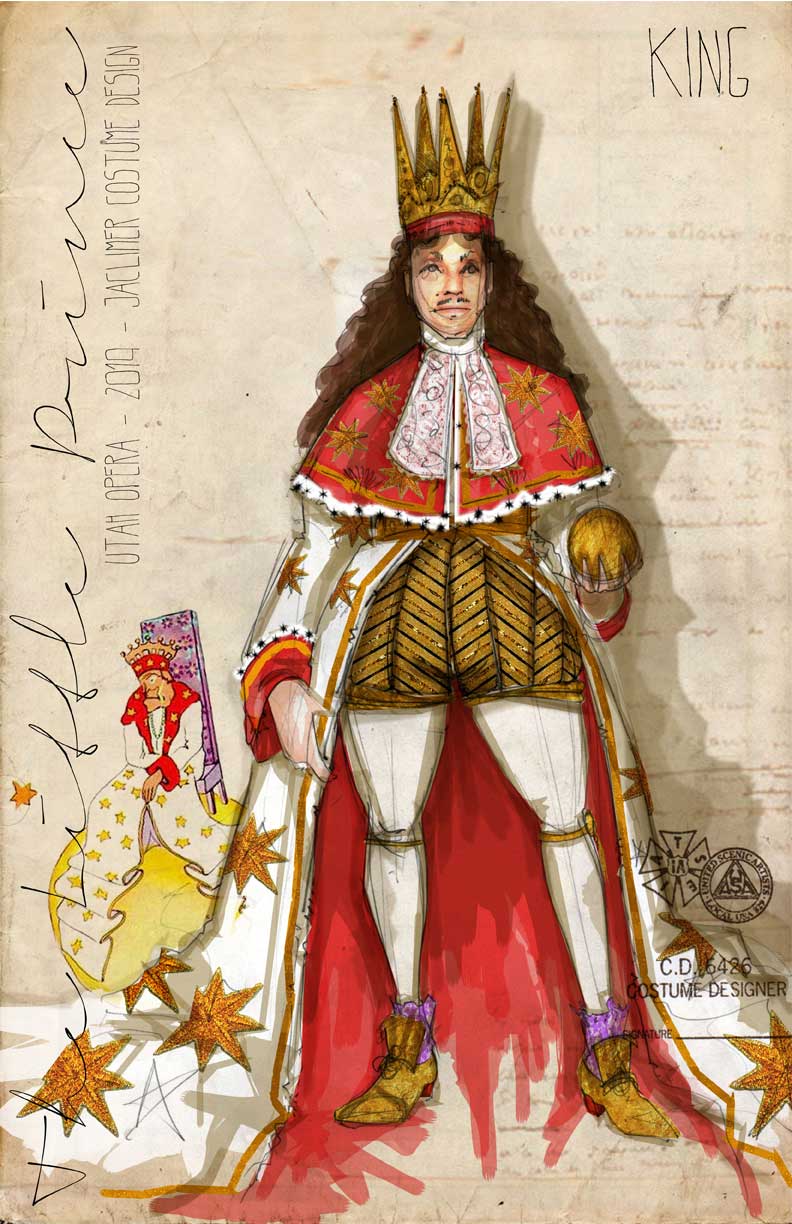
“JACOB A. CLIMER – “THE LITTLE PRINCE”
THE KING
The first person the Prince meets when he takes off on his interplanetary tour is the King. The King thinks that all men are his subjects—even though he is the only one on his planet, with no one to rule. Sometimes politicians, monarchs, and CEOS who make the biggest deal about their power end up being the lousiest leaders.
“Ah! Here is a subject,” exclaimed the King, when he saw the Little Prince coming.
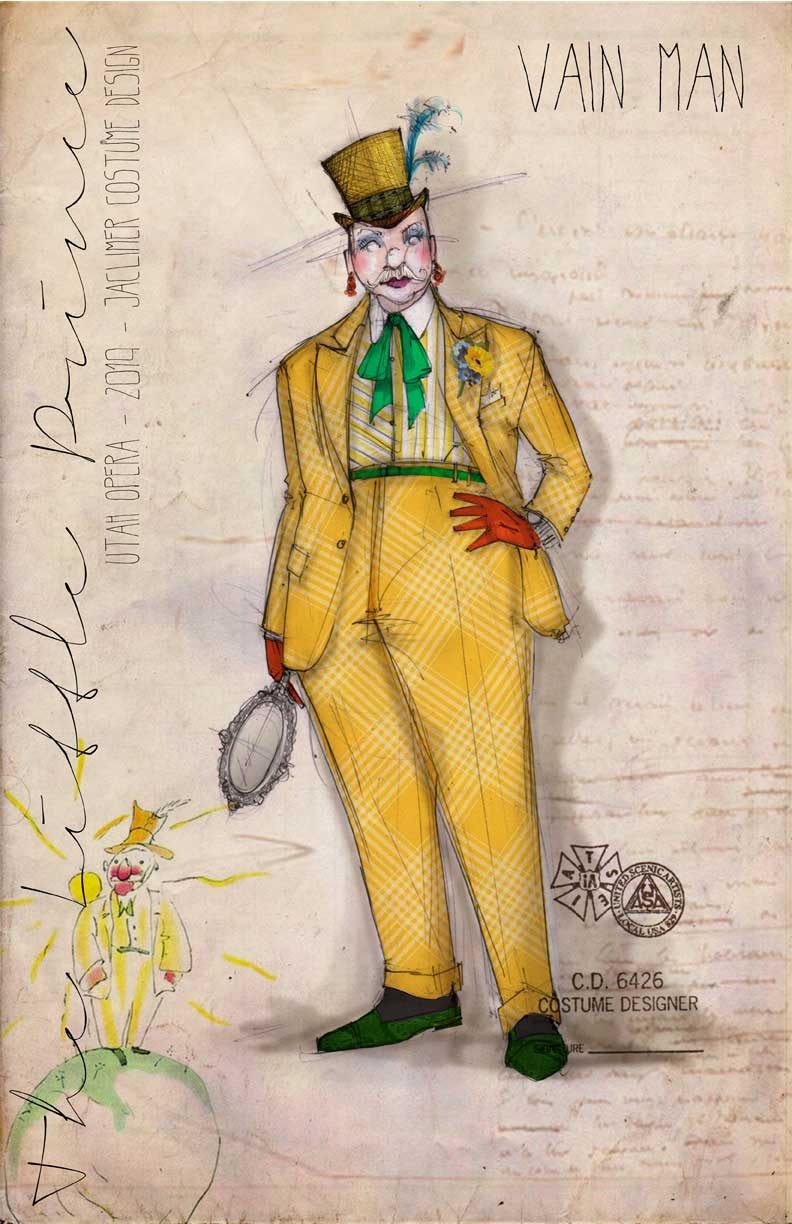
“JACOB A. CLIMER – “THE LITTLE PRINCE”
THE VAIN (CONCEITED) MAN
Next the Prince meets the Vain Man, who thrives on being admired by others. He lives for the sound of applause, and it doesn’t matter to him whether he did anything to deserve praise. After meeting this man, the Prince can’t help but say, “Grown-ups are certainly very strange.”
“But the conceited man did not hear him. Conceited people never hear anything but praise.”
THE DRUNKARD
The third planet is inhabited by a man caught in a vicious cycle. When the Little Prince meets him, he is surrounded by empty bottles. When the Little Prince questions him, the Drunkard says he is drinking to forget that he is ashamed of drinking. The Drunkard illustrates the twisted logic that people use to justify their actions.
“Why are you drinking?” demanded the Little Prince. “So that I may forget.”
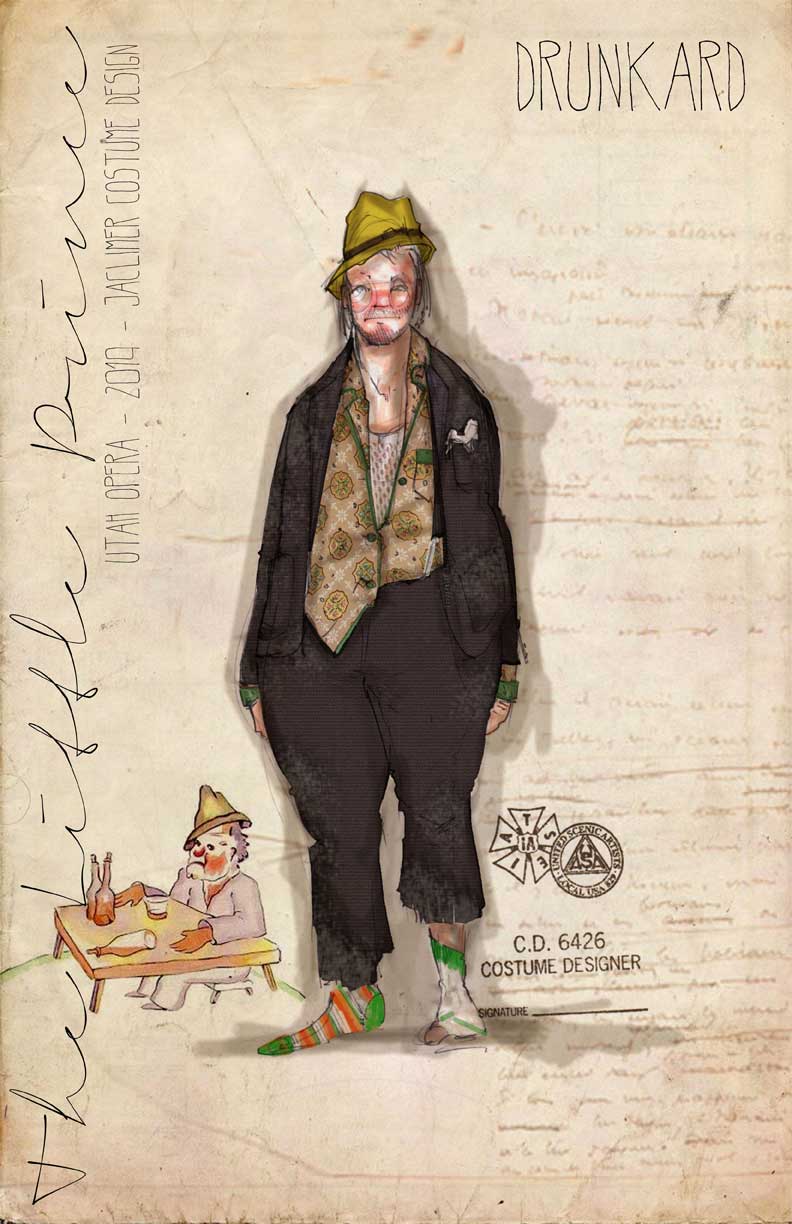
“JACOB A. CLIMER – “THE LITTLE PRINCE”
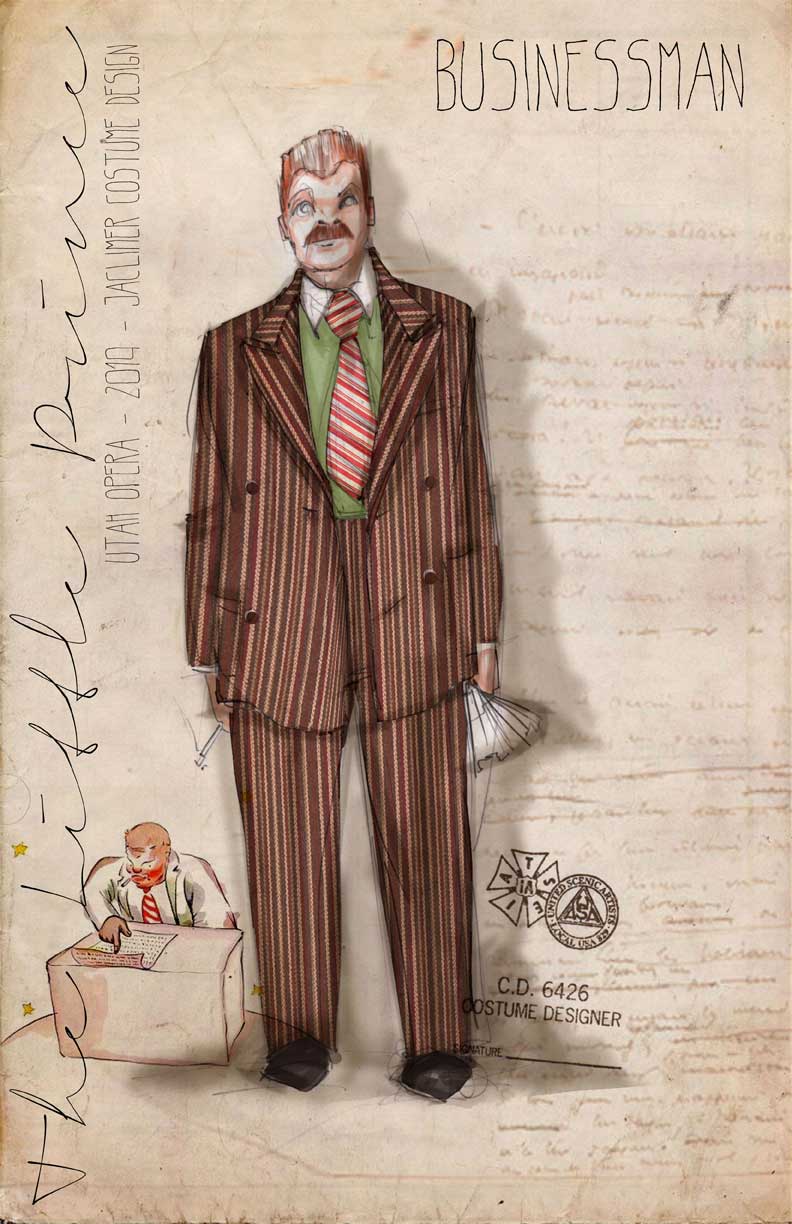
“JACOB A. CLIMER – “THE LITTLE PRINCE”
THE BUSINESSMAN
Arriving on the fourth planet, the Little Prince meets the Businessman, who spends all his time counting his riches. He even believes he owns the stars, just because he has written down their numbers. Like the Drunkard, the Businessman’s thinking is twisted: he explains to the Prince that the purpose of owning lots of stars is so he can buy more of them. The Prince realizes his few possessions are worth more than any amount of money.
“As for me, I am concerned with matters of consequence. There is no time for idle dreaming in my life.”
THE LAMPLIGHTER
The Lamplighter lights a street lamp every night and puts it out in the morning, but because his planet is spinning faster every year, he is always busy. The Little Prince respects this man, who would seem ridiculous to the King or the Businessman, because he is concerned with something other than himself.
“That is a beautiful occupation. And since it is beautiful, it is truly useful.”
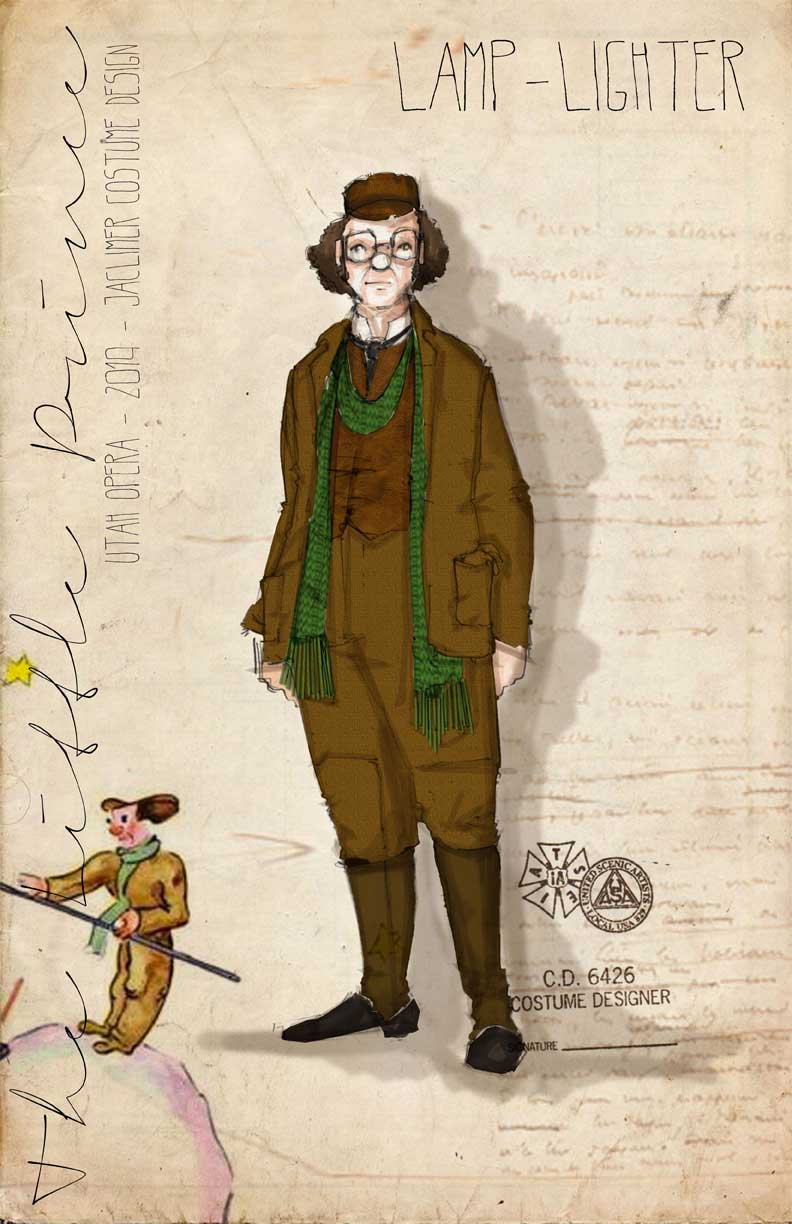
“JACOB A. CLIMER – “THE LITTLE PRINCE”

“JACOB A. CLIMER – “THE LITTLE PRINCE”
THE SNAKE
Even though the Snake speaks in riddles, he is the easiest to understand of all the creatures in the story. When the Snake offers the Little Prince a trip home whenever he needs it, the Prince refuses because he knows the Snake is speaking about death. The Prince later realizes that his body is different from his soul, turns himself over to the Snake, and is never seen again. It’s unclear if he dies, goes home, or disappears. What is clear is that his life goes on because he is loved.
“Whomever I touch, I send back to the earth from when he came.”

“JACOB A. CLIMER – “THE LITTLE PRINCE”
THE FOX
The Little Prince encounters the Fox at a time of sadness; he misses his home and his Rose. The Fox says that the Prince must tame him in order to become his friend—by taming, he means to slowly establish a relationship by learning from each other. When it’s done right, having a true companionship with another living being is the true reward.
“It is only with the heart that one can see rightly; what is essential is invisible to the eye.”
Paul Hopper serves as Assistant Artistic Director at Houston Grand Opera where he manages special artistic initiatives, assists in long term artistic planning, and guides a variety of audiences in learning more about HGO and opera. As principal dramaturg for the company he has worked closely with composers and librettists such as Jake Heggie, Carlisle Floyd, and Ricky Ian Gordon in the commissioning and development of new works. A graduate of the Eastman School of Music and the University of Houston, he previously held positions at the Santa Fe Opera, the Metropolitan Opera, and ADA Artist Management.



